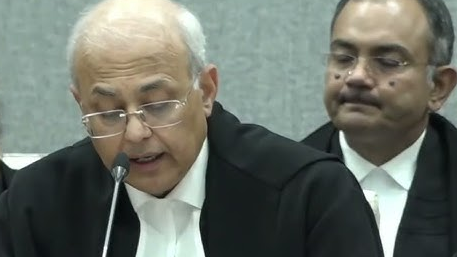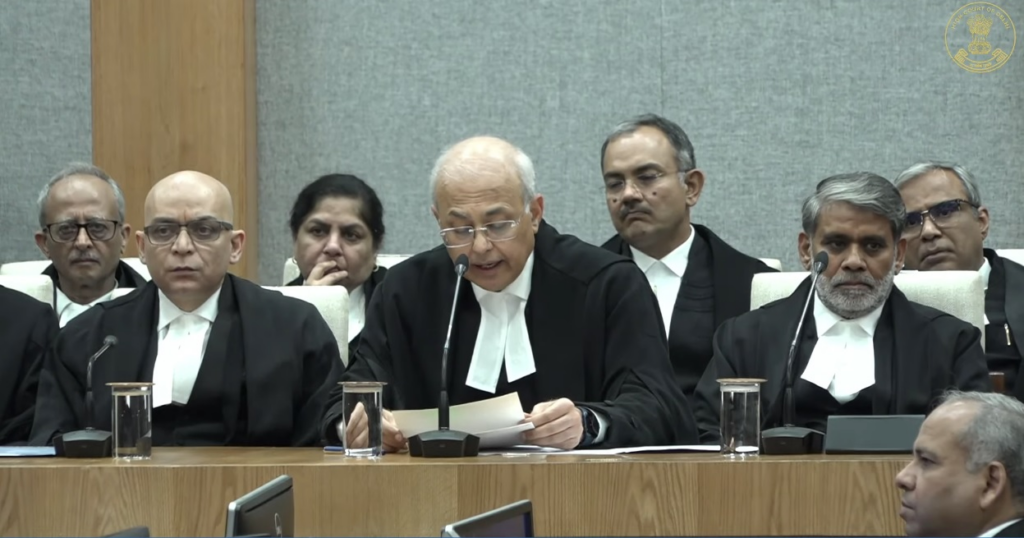In a shocking incident that has sent waves of shock around India’s judiciary, a recovered from the house of a judge at Delhi High Court. This discovery not only raised serious suspicions about the integrity of the judicial system but the Supreme Court Collegium to take immediate action. The finding of the money and the action that followed from the judicial Officials have highlighted India’s checks and balances in the legal system, questioning the level of deceit. within the judiciary and how it is being tackled at the top.

The Discovery
Large amounts of money at the home of a sitting judge of the Delhi High Court were officials just made public. Though the amount of money seized is not entirely clear, data show that it was, which led to immediate investigations by law authority for compliance.
The news has brought susceptibility of the judiciary to corruption, especially the highest echelons of the court system. Judicial officers have the duty to ensure that the rule of law is maintained and that justice is dispensed impartially, making such a revelation especially harmful to the public perception of the legal system.
The Role of the Supreme Court Collegium
Reacting to this revelation, the Supreme Court Collegium, entrusted with recommending appointments, transfers, and removals of judges in India, has acted quickly. The Collegium comprising of the Chief Justice of India and the senior-most judges of the Supreme Court is the ensuring the integrity of the judiciary.
When the Collegium the matter, it acted swiftly to review order the behavior of the judge. Where a sitting judge is involved in serious charges like corruption, the Collegium can recommend their suspension or removal from office pending
This latest move highlights the accountability measures in the judiciary that are put in place to protect its independence and integrity. Even with periodic complaints about the Collegium’s openness in making decisions, still one of the key institutions for ensuring that the judiciary operates without bias and without outside interference.

Implications for Judicial Independence
The reality that money is found in the house of a senior judge has raised serious autonomy of the Indian judiciary. The judiciary is supposed to check and balance on the executive and ensure that the rule of law rules. If the judiciary becomes tainted by corruption, then democracy is shaken to its roots.
The problems the judiciary is facing in ensuring its credibility in a world where corruption runs high in different sections of society. The Indian judiciary, while being strong and capable of ensuring justice in most high-profile cases, has come under mounting charges of corruption, inefficiency, and partiality. This is because more and more cases are pending before courts, creating a backlog that results in tardy delivery of justice.
Additionally, transparency in the appointment and elevation of judges has been controversial for decades. Opponents say that even the Collegium system per se is subject to criticism for its perceived lack of transparency. There have been increasing demands for reform in judicial appointments and openness, response to cases current scandal.

Public Trust and Accountability
The finding of money at the home of the judge further undermines people’s confidence in the judiciary, which is already strained by judicial corruption. Trust in the judiciary is crucial to a working democracy, and whenever such scandals hit the headlines, it undermines the very basis of people’s confidence in the fairness of the judicial process.
The move of the Supreme Court Collegium is important in regaining this confidence. By taking immediate action against the allegations and ensuring that a been done, the Collegium strongly speaks that corruption shall have no judiciary. Transparency of process and outcome in the end will convincing the public that accountability is maintained.
Meanwhile, the episode is a reminder that India’s judiciary needs to continuously strive to protect its credibility. This involves instituting more robust safeguards against corruption, including strengthening the system for monitoring judicial behavior and Improving transparency in the appointment of judges.
The Road Ahead: Judicial Reforms
The incident has revived demands for judicial reforms, especially in the process of judicial appointments and the removal of judges. Though the Collegium system was aimed at protecting judicial independence, it is now in need of reform.
One potential path to reform is to implement a system that is more transparent and accountable to the public. There have been proposals to reform the Collegium system, including allowing for increased participation of the executive and Lawmakers in the judicial appointment process. Will need to balance independence with accountability, the existing system has been faulted for being unaccountable and not transparent enough.
A second possible reform could involve the creation of an independent body that oversees the behavior of judges. Such a body would notof corruption, but to avoid such behavior through stronger ethical codes and frequent reviews.
Lastly, be a necessity for stricter protocols to negotiate with the problem of languishing cases and the inefficacy of the judicial system. With millions of cases lingering in courts all over India, reforms have to be implemented to speed up proceedings and ensure that justice is served on time.

